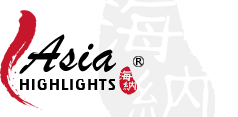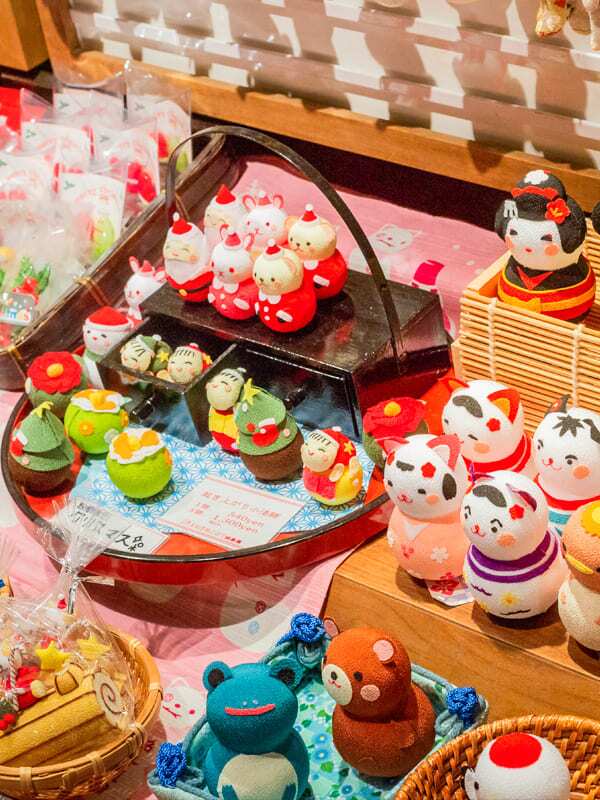The violence and crime rate in Japan is low. A study by the Organization of Economic Cooperation and Development ranked Japan 2014 as "the safest country in the world". But you still need to be aware of potential crime, especially in crowded areas. In case of emergency, you can call 110, but be aware that there may not be any English speaker available at the other end.
In 2016, the WHO out of 190 countries, ranked Japan number 10 in the efficiency of the healthcare system. As Japanese hospitals are well equipped, medical facilities are good, and the staff is highly trained, the cost of treatment is high. It is therefore advisable to buy a travel insurance before going on your holiday.
Quick Facts
- For the most part, Japan is a very clean and very safe country.
- Be aware that Japan is in a major earthquake zone, and earthquakes of varying force occur very frequently.
- The typhoon season in Japan normally runs from June to October.
- Anyone in a dangerous situation should call Japan’s emergency number 110 or look for a police box which are located on every other corner.
- As you plan your trip, take advantage of purchasing both travel and medical insurance, so that you are prepared in case of any unforeseen circumstances.
98.8% Positive Customer reviews among 10,000+

  |
Sharon has been very helpful since the…
Sharon has been very helpful since the beginning coordinating our itinerary in order to accommodate everything we want to see, it been great working with her More
May,
Jul 2023
|
When I first book I was scared of what…
When I first book I was scared of what to expect, but oh my God! What an amazing experience this has been, from Sharon to all the guides Shawn and Mr. Ho, such amazing people! Their work is excellent More
Saul Velez,
Jul 2023
|
Albee was very helpful and responsive…
Albee was very helpful and responsive in helping me make plans for their 10 day Japanese tour. More
Bhavini Patel,
Jul 2023
|
Alisa was a perfect tour consultant
Alisa responded to my numerous questions with efficiency and accuracy. She was constantly suggesting options to make the trip more enjoyable More
Matha Goram,
Jul 2023
|
I highly Recommend Asia Highlights
For our first guide Jun, he was amazing. Very accommodating. Kept in good communication & kept us on time for our activities. Reached out to me the night before to confirm meet times and locations. Our driver for this time was also so kind & driver was always on time. For our second Guide , Ho. He went above and beyond. He stayed in great communication. Stayed later with us on one of the days because we were worried about riding the train back alone but wanted to visit at the shopping center a littler longer, so he stayed with us and made sure we got off on the right stop! During our time with him he took pictures of us and sent them to us! He was very knowledgeable about every place we visited. He was kind and patient with our large group. He made our trip easy & memorable. The driver we had for this timeframe was also kind & always on time! We felt a bond with both guides given to us! If you want an easy going, stress free trip book with “Asia Highlights”!!! More
Jessalynn Flores,
Jul 2023
|
Working to put together a custom trip…
Working to put together a custom trip with Alissa has been a great experience More
Marc,
Jul 2023
|
Wonderful Service from Sharon!
Sharon at Asia Highlights has been a HUGE help in planning our trip to Japan later this year. From her initial contact to finalization of the plan, she has been very responsive, professional, patient, and knowledgeable. She was able to quickly propose an amazing itinerary and helped us customize it for our interests. She also made many great recommendations and gave us tips for the trip. I wasn’t familiar with Asia Highlights before I reached out, but after Sharon’s wonderful service, I have full confidence in them. I can’t wait for the trip and I hope it’s as awesome as Sharon’s service!!! More
Ali Tahir,
Jul 2023
|
Wonderful trip
We had a wonderful time in Japan with guides Moni and Kazuko and with Jan in Singapore. Will always remember this trip! More
Happy Customer,
Jun 2023
|
Just got to say
Just got to say, Monica was great in every way! So sweet and helpful with planning, itineraries, answering questions… would love to meet her in person! Thank you Monica! More
Teri,
Jun 2023
|
Monica is fantastic
Monica is fantastic. She understood our needs, was very responsive and planned a perfect vacation for us. Highly recommend. More
Philip Sheldon,
Jun 2023
|
Me and my son are traveling to Japan
Me and my son are traveling to Japan. Albee is magnificent. Extremely efficient, helpful, trustworthy. I am very happy she is helping us with my son's dreaming trip. More
Ana Letícia Urbanin,
Jun 2023
|
A great way to plan a dream vacation
Due to circumstances, we had to delay our trip to Japan so this review is only about the process of designing the trip. Albee was always available, responsive to our goals, and competent. Based on how involved he was with our family trip, we know we will be back next year and resuming the plan he built. Really impressed with the quality and extent of resources we found through Albee and KimKim. More
KC,
May 2023
|
Yeliz - Asia Highlights
Yeliz was extremely helpful and patient during our Japan trip planning and answered all my various questions. Really looking forward to our upcoming trip to Tokyo, Mt. Fuji, Kyoto and Osaka! More
Cyndie,
May 2023
|
Sharon’s was very patient and helpful…
Sharon’s was very patient and helpful when navigating me through the trip planning process. She helped me plan a very exciting and extravagant trip. More
Jonny Abad,
May 2023
|
Wonderful 10 day trip in Japan!!!
Well planned trip by Alisa . Everything was well scheduled, guides and drivers were excellent!! The cars were extremely comfortable and the hotel she chose for us was beautiful!! Enjoyed planning with her she was very professional and always offered other choices. More
Lianne Stone,
May 2023
|
11 days trip to Japan
I am planning my trip to Japan in November with Sharon's help and she has provided amazing customer service.She is very responsive and put together very quickly an incredible plan for 11 days in Japan. She provided recommendations and made changes based on our interests and budget. She also provided information about visa restrictions and the best way to get tickets for transportation services. Thanks so much Sharon, looking forward to this trip! More
LE,
May 2023
|
Japan trip
Hi Cathy! I just want to thank you for making our Japan trip so much fun & memorable! We loved everything that you had scheduled for us! All the guides and drivers were great & punctual! We love Japan so much that we’re planning to go back next year to different part of Japan! We’ll definitely contact Asia Highlights for our trip again! Serene More
Serene Storslett,
May 2023
|
Quick, easy and detailed service
Alisa was our advisor from Asia highlights and she prepared for us a wonderful 28 day trip to Japan, taking into consideration our needs and desire not to be traveling everyday and to have a mixture of slow and busy days. We've not yet taken our trip, but very much looking forward to it Thank you Alisa for the quick response and wonderful itinerary More
Lynette Whittle,
Apr 2023
|
Japan Tour
Sharon Huang did an excellent job in planningour 15 day Cherry Blossom Japan tour. Shewas available during our trip to answer our questions and readily agreed to the itinerary changes.Everything was arranged - accommodation,breakfast, guide, car, entrance fees and train tickets. The guides were knowledgeable, and managed the tour very efficiently. The drivers were punctual and very patient. We visited must see places in and near Tokyo, Kyoto, Osaka and Hiroshima. We also got to experience Japanese Tea ceremony, Sushi making, Sake tasting, shopping etc.We highly recommend Asia Highlights for your travel needs. More
Madhu,
Apr 2023
|
I organized a trip to Japan for my
I organized a trip to Japan for my parents who don’t speak English and Alisa was so amazing helping make an itinerary for them. They needed a Spanish guide and she coordinated everything so they wouldn’t have any trouble when they got there. She was so patient changing and adjusting the itinerary to their needs and wants, it’s been a total pleasure working with her and she always responds promptly to any question I have. I definitely recommend this company and if you can ask to work with Alisa. More
Luisa,
Apr 2023
|
Safety in Japan
The crime rate is extremely low compared to most other countries. Japan is a safe country for women travelers or travelers with kids. If you leave your stuff somewhere, somebody might just run after you to give it back. But if you do lose any belongings, report it immediately to the friendly police officer.
Police
Kobans, are small police stations with a desk and a couple of chairs in a single room, strategically placed throughout the cities and neighborhoods so that you can always find a safe haven. Mostly people will come to a koban for reporting a crime or something suspicious, for handing in a found item, and for asking for directions.
Going to a police station in Japan can be a challenging experience, as they probably won’t speak English. But the police officers are nice and helpful. They are used to people regularly asking for directions and will quickly pull out a local street map, often pasted onto a large board for ease of reference.
Theft, Scams and Crimes
Although crime levels are low, Japan is not a crimeless paradise. Bad things happen even there, especially in bigger cities such as Osaka and Tokyo. Personal attacks, including sexual assault, are rare but do happen. It is generally safe to walk about at night and to travel on public transport, but don't let your guard down.
Tokyo’s entertainment districts, like Roppongi and Kabuki-cho, are considered higher risk areas for crime, especially at night. There are reports of foreign nationals being targeted for drink-spiking, credit card fraud, extortion, robbery, assault and sexual assault in clubs and bars.
Ways to keep safe in Japan are: Avoid street touts, don't accept food or drinks from strangers or new acquaintances, don't leave food or drinks unattended, always monitor your belongings, avoid carrying credit cards or too much cash to entertainment districts.
Lost and Stolen Property
If you lose any of your belongings in Japan, maybe you will have a positive experience thanks to the Japanese sense of obligation and kindness. If you lose something out of doors or on the street, your first stop will be the koban or police box. Usually strategically located at intersections or next to train stations for everyone to notice, the koban officer is your friendly neighborhood police.
You will be asked to describe in detail what you lost, where you think you lost it and when. After hearing your story, the policeman on duty will check in their found items room. If the koban officers do not have your lost item they will call if it turns up.
Women Travelers and Travelling with Kids
Japan is a destination that is easy and safe to explore with kids. A safe, clean and exciting country, Japan has all the credentials for a great family holiday. There is plenty to keep children of all ages entertained.
Many women walk alone along the streets or eat alone in the many food-bar type restaurants. On the trains and subways a lot of women travel alone. That means Japan is safe for solo or group female travelers. Personal attacks, including sexual assault and rape, are rare but do happen. Reports of inappropriate touching of female passengers on commuter trains are fairly common.
Natural Disaster
As Japan is in a major earthquake zone you should familiarize yourself with safety procedures. Information on earthquakes and any impact on towns and cities in Japan, including tsunami warnings, are published by the Japan Meteorological Agency. There are several active volcanoes in Japan. You should monitor local media reports and follow the advice of local authorities.
The tropical cyclone (typhoon) season runs from June to October, with most activity between July and September. Southern parts of the country are particularly at risk. Typhoons that hit Japan are often accompanied by damaging high tides. People living in coastal areas are particularly at risk. Landslides and flooding can occur anywhere. The dangers increase when an earthquake occurs shortly after a typhoon has saturated an area.
Health in Japan
As expensive as they are, medical facilities are abundant in Japan, with their treatments and medicines being of a high caliber. To ensure the medical bills don’t rack up, make sure you are covered by a travel insurance.
Vaccinations and Medicines
Japan has strict rules governing the import of medicines, and what can be carried into the country by travellers for personal use. Medicines are classified into five categories: general, narcotic, psychotropic, stimulant, and medical device.
Take legal prescription medicine with you so you remain in good health. Always carry your prescription and a letter from your doctor, stating what the medicine is, how much you have to take, and that it is for personal use only.
No vaccinations are required before entering Japan. But some vaccines are recommended, for example influenza, which is a regular occurrence in Japan, with flu season running through the winter months. So, it is a good idea to get an influenza injection before you go to Japan.
Food and Drink
Tasting the local cuisine is a must when you travel abroad. Japanese cuisine is renowned for its fresh seasonal ingredients and artistic colorful decorations. Each region has its special dish which uses local fresh ingredients.
The typical Japanese meal consists of a bowl of rice, a bowl of miso soup, pickled vegetables, and fish or meat. As an island nation, the Japanese take great pride in their seafood. A wide variety of fish, squid, octopus, eel, and shellfish appear in all kinds of dishes from sushi to tempura.
Japan’s most famous drinks are matcha and sake. Matcha is a bitter green tea used in tea ceremonies. Sake (rice wine) is regularly served hot or cold. Whisky is also gaining popularity, thanks to a number of Scotch-style distilleries.
Hospitals and Pharmacies
Medical facilities are good, but the cost of treatment is high. Hospitals and clinics are well equipped and staff highly trained. Medical facilities with English-speaking staff can be found in most major cities. You will be expected to pay the whole cost of any treatment you receive and there have been cases where treatment has been delayed whilst medical facilities check the legitimacy of the insurance.
Emergency
In cases of emergency, dial 110 for the police and 119 for fire or ambulance services. Emergency telephone numbers can be called from home phones, mobile phones and public phones. Calls are free of charge from any phone, including pay phones.
When making an emergency call from a public phone that has a liquid crystal panel as its display, just pick up the handset and dial the required number. When making an emergency call from a public phone that has a kinkyu tsuho button (an emergency notification button) on the front of the unit, make sure to press it and then dial the required number.
Travel Insurance for Japan
It is recommended to buy travel insurance before you come to Japan. Be sure to get a policy that covers lost luggage, cancelled hotel bookings and plane tickets, and damaged or stolen belongings (although theft in Japan is extremely rare, it does occasionally happen).
Make sure you have adequate travel health insurance that covers pre-existing conditions and the cost of any medical treatment abroad, including medical evacuation and repatriation. You should contact your medical assistance company promptly if you are referred to a medical facility for treatment.
Explore Japan with Asia Highlights
Undoubtedly, a trip to Japan can be exciting! As you plan, remember to purchase a travel and medical insurance that will give you the peace of mind you need to truly enjoy all of the activities and adventures you have planned while abroad. Feel free to contact Asia Highlight staff to get more details about Japan’s health and safety issues.
Why Travel with Asia Highlights (98.8% positive customer reviews among 10,000+)
- Unique experiences tailored to your interests: Enjoy a premium trip that goes beyond the typical tourist attractions.
- Hassle-free travel and peace of mind: Every aspect of your trip will be carefully planned and organized by your 1:1 travel consultant.
- Experienced and knowledgeable guides: Your guides will be local and love to work for travelers' smiles.
- Japan Weather in January 2024: Quiet Winter Month
- Japan Weather in February 2024, Where to Go & Costs
- Japan Weather in March 2024, Travel Tips (for First-Timers)
- Japan Weather in April 2024: Best for Cherry Blossoms
- Japan Weather in May 2024, Where to Go and Costs
- Japan Weather in June 2023: Coolest Summer Month, Travel Tips
- Japan Weather in July 2023: Best for Festivals, Travel Tips
- Japan Weather in August 2023, Travel Tips (for First-Timers)
- Japan Weather in September 2023, Travel Tips (for First-Timers)
- Japan Weather in October 2023, Where to Go & Costs
- Japan Weather in November 2023: Best Autumn Month, Travel Tips
- Japan Weather in December 2023, Travel Tips (for First-Timers)
Get Inspired with Some Popular Itineraries
At Asia Highlights, we create your kind of journey — your dates, your destinations, at your pace. You can have any trip tailor made for your travel.








